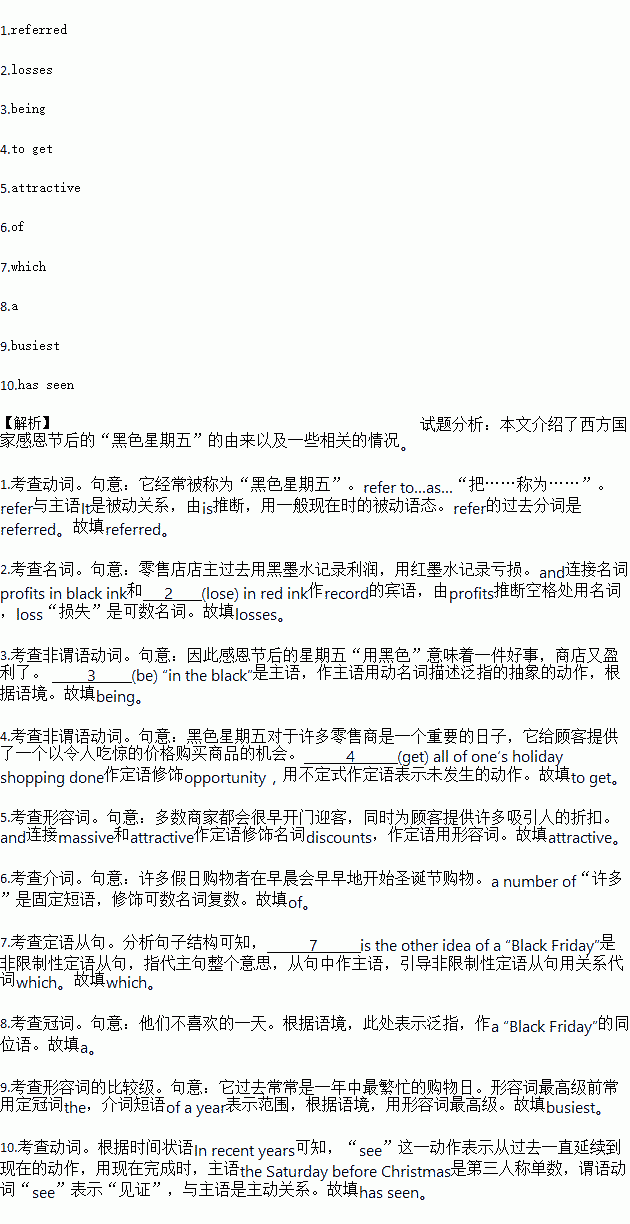题目内容
One of the major holiday shopping days is the day after Thanksgiving. It is frequently1.(refer) to as Black Friday. The use of the word “black” relates to the business accountants. Storekeepers used to record profits in black ink and2.(lose) in red ink. So3.(be) “in the black” on the Friday after Thanksgiving means a good thing, a return to profit.
Black Friday is the big day for many retailers, and it presents the shopper an opportunity4.(get) all of one’s holiday shopping done at once among amazing sale prices. On that day, most retailers will open very early and usually provide massive and5.(attract) discounts on their product while a great number6.holiday shoppers will get an early start in the morning to begin Christmas shopping.
Black Friday also means that people face crowded stores,7.is the other idea of a “Black Friday”,8.day they do not like. It used to be the9.(busy) shopping day of a year. Many people avoid this shopping day altogether because of the stress involved in fighting the crowds. In recent years the Saturday before Christmas10.(see) the biggest shopping crowds.

